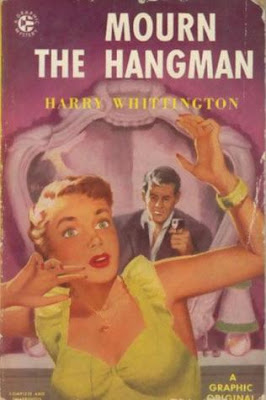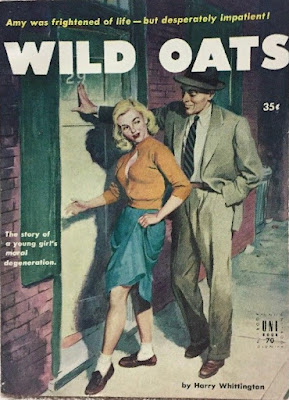Editors Rick Ollerman and Gregory Shepard canvassed digests including Alfred Hitchcock’s Mystery Magazine, The Man From U.N.C.L.E. Magazine, Manhunt and many obscure publications to curate this collection that appears to be genetically-engineered to appeal to Paperback Warrior readers.
The anthology boasts 30 stories from crime fiction royalty including Harry Whittington, Fletcher Flora, Fredric Brown, Gil Brewer, and Peter Rabe. They also included a never-published short novel called “So Curse the Day” by Jada M. Davis, author of the 1952 paperback One For Hell.
At 458 pages, you’re bound to find something to enjoy here. Reviewing a short story anthology is a fool’s errand, but here are some quick blurbs of stories I read on my first pass-through.
“The Tormented” by James McKimmey
The story originally appeared in the August 1967 issue of The Man from U.N.C.L.E. Magazine. The setup is simple. Vince Ecker is a redneck hunter. David Farrel is an over-educated clerical worker. Somehow, they go hunting together on land owned by a wealthy investment tycoon, and Ecker learns where the tycoon stashes his cash. Sounds like it’s time for a heist. As expected, this is a very well-orchestrated crime story consistent with McKimmey’s longer works.
“Nothing in My Way” by Orrie Hitt
Orrie Hitt was the best sleaze-fiction author of his era because his best works were often sexy crime novels incognito. This short story was from Smashing Detective Stories July 1955 issue. The story is about a man who fakes his death for the insurance money and then surgically changes his face so no one will recognize he’s still alive. But in order to enjoy the life insurance money, he needs to get it from his no-good, slutty widow. This is a fantastic story with a great twist ending. Make this one a priority.
“Secretaries Make Such Nice Wives” by A.S. Fleischman
This is probably the shortest story in the book. Taken from the Toronto Star Weekly in 1946, it’s a fun little tale about a man and his wife who are taken hostage and forced to drive the bad guy across the border from Tijuana to San Diego. The driver needs to alert the border police without tipping off the carjacker. The story is just setting up a decent punchline at the end. It’s definitely worth the five minutes of your time it will take you to read it.
“The Geek Girl” by Day Keene
This delightful tale of carny-noir by Day Keene was originally published in Australia’s ADAM magazine in 1953, so we are lucky to find it resurrected here. Opening day of the Carnival passing through Langley is here, and our narrator Morgan (“the talker”) walks the reader through the advance work that makes the road show possible. In town, he meets a beautiful mute girl in trouble with the law and hires her to be a trumped-up geek exhibit on the midway. The story of the geek girl is not a crime story as much as it’s a dramatic and compelling carnival vs. corrupt townie story. But don’t skip this one. It’s a lost classic.
Final Assessment
The editors clearly put a ton of work into The Stark House Anthology and it shows. For 25 years, the publisher has been unearthing and reprinting the finest paperback novels of the 20th century. I hope they continue to compile short fiction from the era because this collection is a total gem. Highest recommendation.
Buy a copy of the book HERE




















